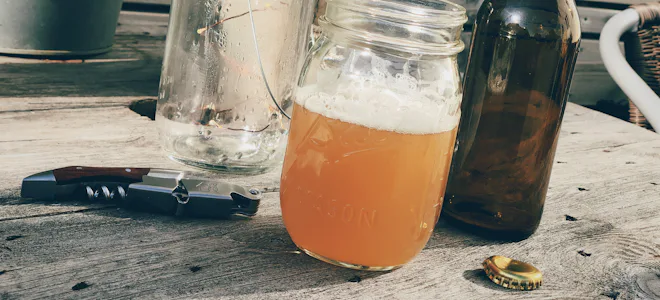Setting Up a Nanobrewery
Table of Contents
The term ‘nanobrewery’ is a relatively new one for the industry. It was probably conceived as a joke, based around the ‘micro’ prefix on microbrewery, and taking the next smaller scale in the metric system to denote a brewery that is very small indeed – although for the literally minded, not necessarily 1000 times smaller than that of a microbrewer.
But joke or not, the word has become recognised because it is useful. A nanobrewery is a stage up from a brewpub – that brews its own beer and only sells on-premises – but smaller than a microbrewery. These days, craft beer brewers producing hundreds of thousands, if not millions of gallons annually are still referred to as microbreweries, if only to distinguish them from the industrial brewers.
So a nanobrewery is a microbrewery, often run by a solo entrepreneur that produces beer in small batches. One barrel systems are sometimes found, although a commonly accepted definition of a nanobrewery is a brewery that produces in batches of three barrels or smaller.
A nanobrewery probably can’t produce enough beer to turn a profit that you can live off – but it could provide a way of turning a home brew hobby into a small sideline business – and be your first step into becoming a real microbrewer.
Getting started
If you are thinking about setting up a commercial nanobrewery, or even a production brewery with a bottling line, you can use a large homebrew rig as the initial commercial system. As soon as you start selling beer, it will magically become a commercial nanobrewery.
However you can’t run a brewery business from your kitchen, no matter how small it is, and you will need to find suitable premises.
If you have an outhouse, such as a barn or a large garage, it might provide a starting point. A 3-barrel facility, which may be around the smallest viable for a nanobrewery, could be housed in as little as 250-500 square feet, but you may need additional space for storage of empty bottles and kegs, and remember, if your business is a success you will need room to expand. Also consider how much space you’ll require to condition bottled beer and kegs. Bottle and keg-conditioned beer will need to be stored for about three weeks to carbonate naturally, and you might need to store several batches.
Utilities and equipment
You must have running water for your nanobrewery. The quality of your water is crucial to the quality of your brew, and the local tapwater might not be suitable. If you can find a property with a well it would be ideal – it is still possible in some areas, although you should have the supply checked to ensure that it is free from contamination.
Of course, you will also need electricity and drainage, and open floors capable of carrying substantial loads, together with good roof height. Washable, seamless, anti-slip flooring could be a lifesaver – and you may be able to install polyurethane resin flooring over an existing floor. The building will also need to have commercial wiring and floor drainage systems that are acceptable for food production operations.
You may be able to buy secondhand equipment, such as mash tuns and fermentation tanks, and the potential savings could be crucial to your new enterprise. New equipment for a small operation is likely to start at around £5,000, and rise rapidly as the size of vessels – and your business – expands. Stainless steel is preferable these days, but if you do use plastic materials, ensure that they are built with food-grade plastics and rubber such as polyethylene plastic, high-temp polysulfone plastic and neoprene.
Commercial breweries tend to be treated a little more leniently than food processing facilities, as beer does not pose the same risks as actual food products, nor does it harbor pathogenic bacteria and viruses. Still, you will need to have stainless steel sinks for washing equipment and a separate handwashing sink.
Dealing with the costs
Even if your nanobrewery is a sideline, you will need to invest to make it a success - and if you have the ambition but not necessarily the cash, the best way to deal with those costs may simply be to call us at Rangewell.
We work closely with our clients to understand their needs before we recommend a particular type of finance - it means we can help you find the funding you need - and pay less for it - even if your business is nanoscaled.

